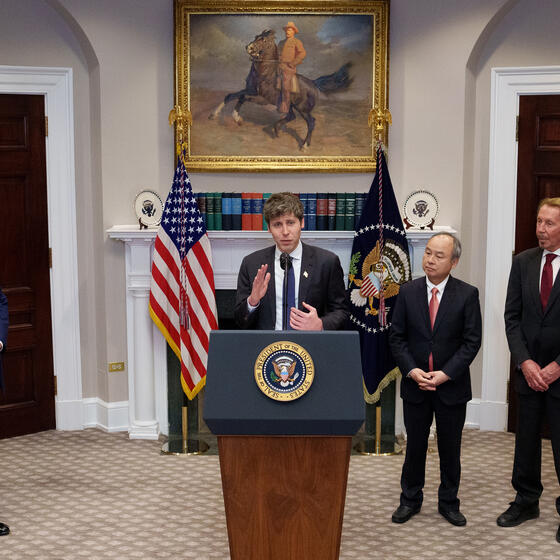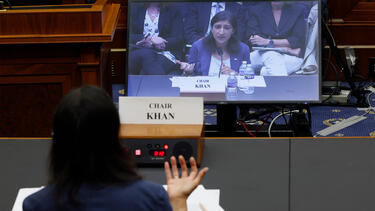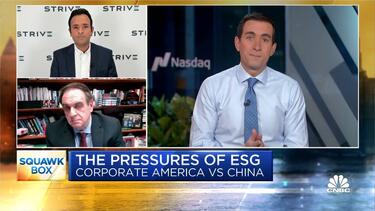Politics and Policy
What Happened When Five AI Models Fact-Checked Trump
President Donald Trump is an AI booster, write Yale SOM’s Jeffrey Sonnenfeld and co-authors Stephen Henriques and Steven Tian. So they thought it was fair to ask the leading chatbots to evaluate some of Trump’s frequently repeated claims.

The FTC’s Antitrust Overreach Is Hurting U.S. Competitiveness and Destroying Value
Yale SOM’s Jeffrey Sonnenfeld and Steven Tian write that FTC chair Lina Khan’s attempts to block mergers are draining economic value—and consistently failing in court.

Dialogue About the Middle East Is Possible—Indeed, It’s the Only Way to Peace
A recent event held at Yale showed that discussions among Israelis, Arabs, and other concerned parties can help bring out points of commonality that may be the first steps on a path toward peace, argue Yale’s Jeffrey Sonnenfeld and Steven Tian.

Saying ‘Yes’ to Solve the Affordable Housing Crisis
A lack of affordable housing is exacerbating homelessness and hobbling economic competitiveness, yet efforts to build new housing regularly meet NIMBY pushback. Three Yale SOM alumni tackle the tough challenge of getting to yes.

U.S. Government Regulators May Be Favoring Their Future Private-Sector Employers
How does the “revolving door” between government and industry benefit firms? A new study co-authored by Yale SOM’s Ivana Katic finds that firms see a smoother regulatory process in the months before they hire a former regulator, suggesting that they may find favor via the promise of future employment.

To Prevent a Wider War in the Middle East, Choke Off Iran’s Oil Sales
Through its proxies, Iran is making aggressive moves against Israel and the U.S. Yale SOM’s Jeffrey Sonnenfeld and Steven Tian write that the U.S. has an option for effective deterrence: cutting off Iran’s oil revenue by strengthening sanctions and imposing a price cap.

How Peace and Prosperity in the Middle East Can Still Be Reached
Paradoxically, the invasion of Israel could could help accelerate progress toward regional peace, write Yale SOM’s Jeffrey Sonnenfeld, diplomat Dennis Ross, and investor Adam Boehler, former CEO of the U.S. International Development Finance Corporation.

The Russian Oil Price Cap Can Work Again
With oil prices rising, Russia is finding ways around the price cap set earlier this year. But Yale SOM’s Jeffrey Sonnenfeld, who advised on its implementation, writes that with rapid adjustments, the program can continue to hobble Vladimir Putin’s war effort.

The Budget Deal Is a Tragedy for Ukraine
With hours to go before a government shutdown, Congress passed a short-term spending bill—but the deal came at the cost of aid for Ukraine. Yale SOM’s Jeffrey Sonnenfeld writes that even if a separate funding bill eventually passes, the move weakens the coalition against Russia.

What Awaits Ukraine Once the War Ends? Prosperity, For One Thing
Once freed from Russian aggression, Ukraine will thrive, argues Prof. Jeffrey Sonnenfeld.

What I Learned Debating Vivek Ramaswamy
Yale SOM’s Jeffrey Sonnenfeld, who has tangled on cable news with the entrepreneur turned GOP candidate, says the key is to avoid following him down diversionary rabbit holes.
